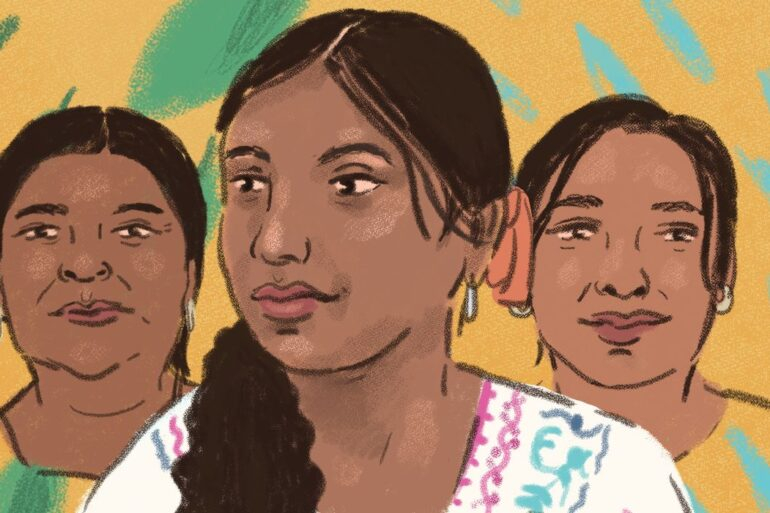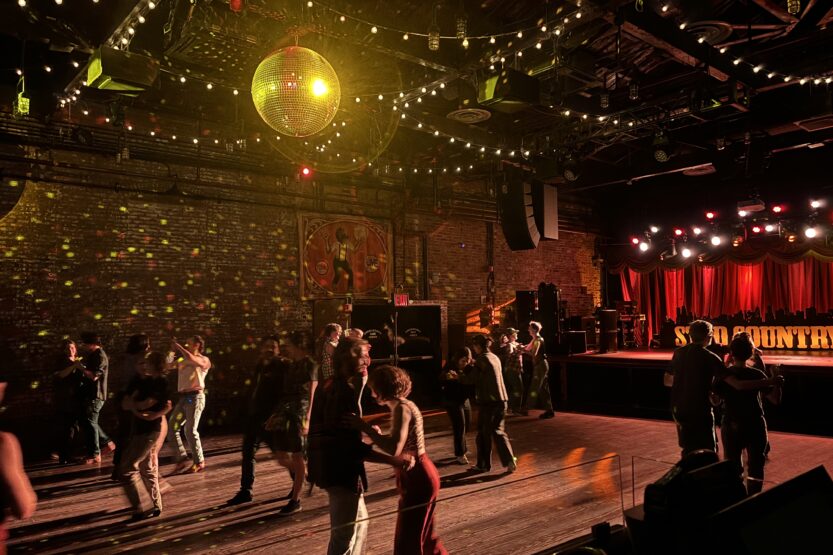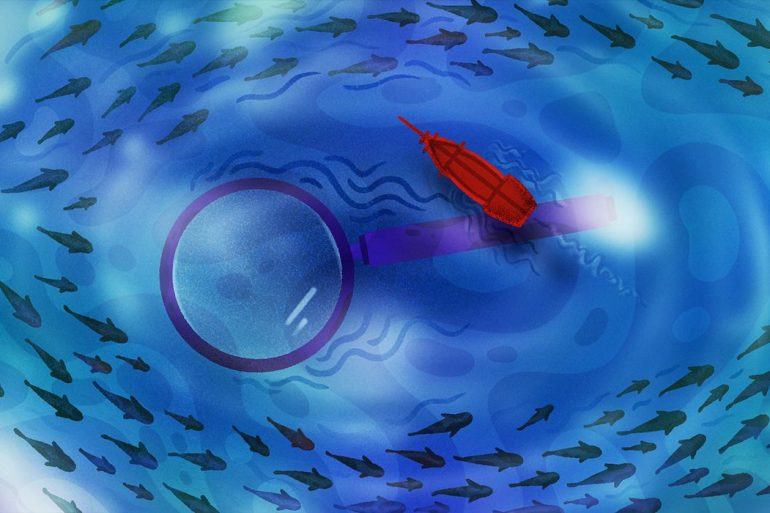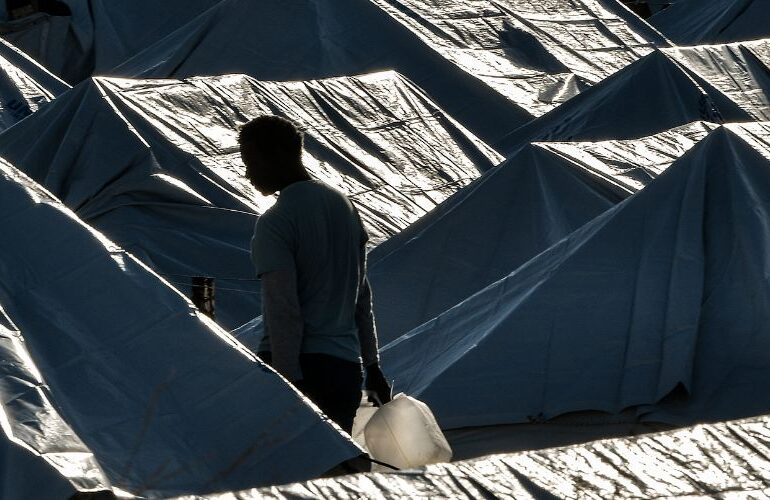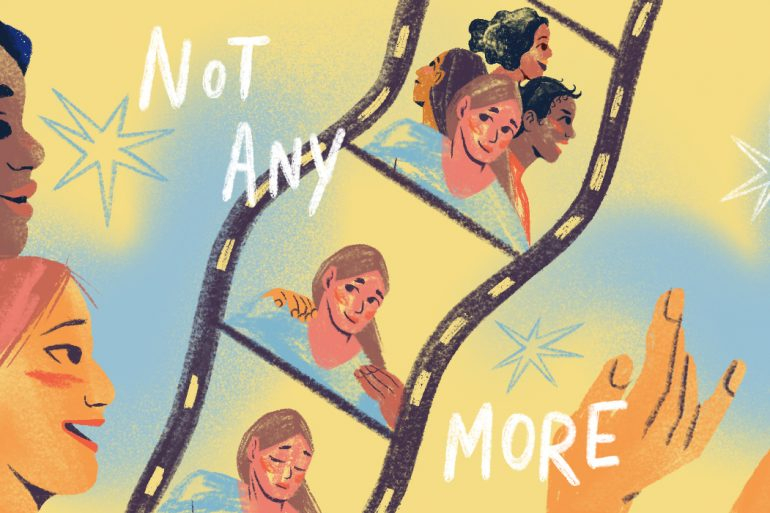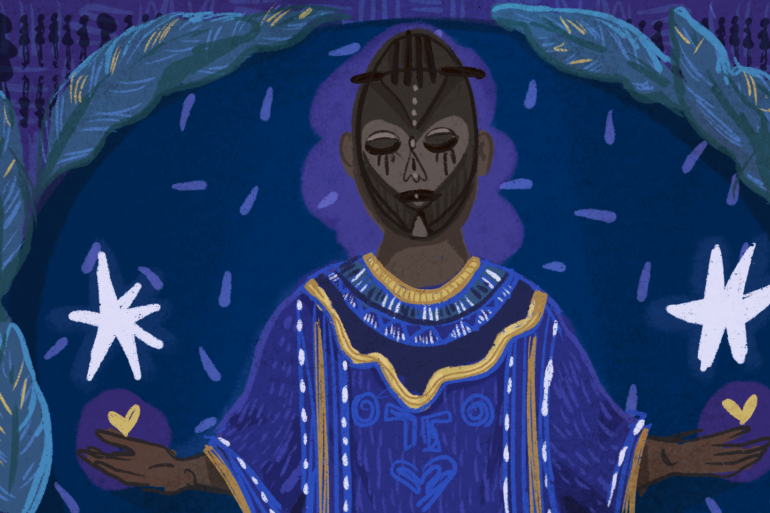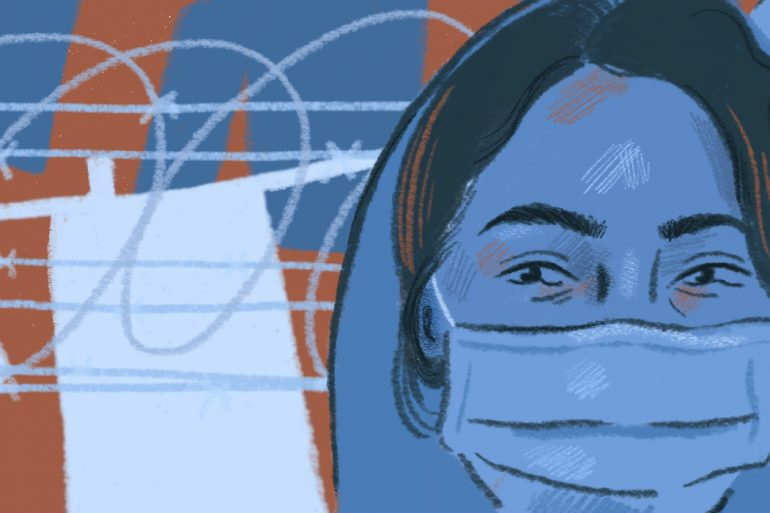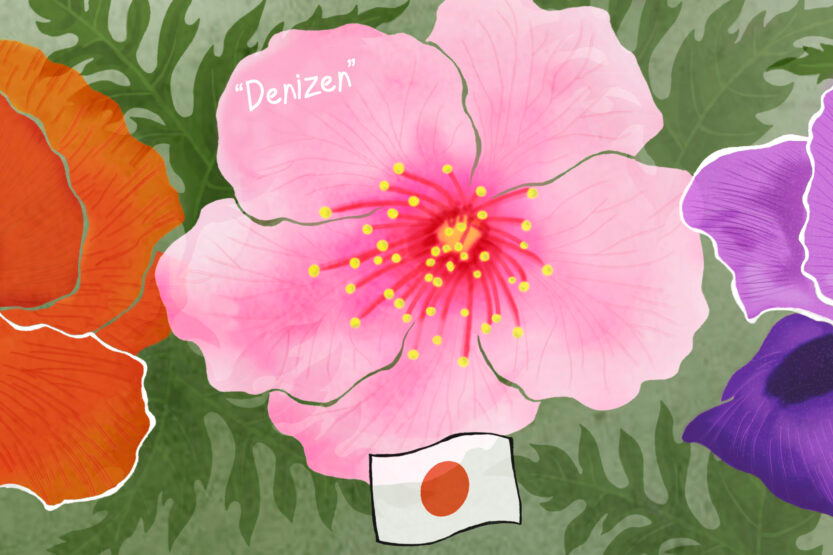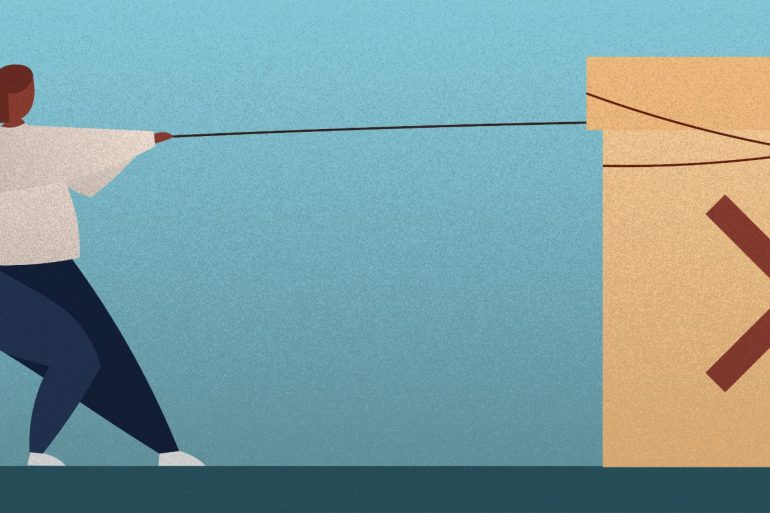My Baba is from Pakistan, where monsoon season is a reality practically etched into our DNA.
It is an event we write poems, sing songs, and tell stories about. It is also an event we each experience by the destruction that’s often left in its aftermath.
Despite our familiarity, the oppressive humidity warns us of what is coming. Monsoon rains will worsen alongside the climate crisis. We know this because we can feel heat waves constrict our cities and we see our magnificent glaciers melt.
Those who have contributed the least to climate change globally, feel the impacts intimately and violently. Communities are robbed of mothers, babies, aunties, and this critical intersection of reproductive and climate justice is why midwives are needed now more than ever.
This past August 2022, Pakistan experienced catastrophic monsoon rains, followed by massive floods, recorded as the worst in the country’s history. When disaster strikes, it becomes clear how “gender equality, sexual and reproductive health and rights (SRHR), and climate change issues are inextricably linked.”
Hundreds died, thousands lost their homes, and millions were displaced. Undeniably those most impacted were pregnant people, mothers and babies because of the acute and rampant inequalities that impact women in Pakistan. Families lost their supply of clean diapers, people were bleeding into the same pads for days, mothers were forced to give birth in temporary displacement camps, and all pre-existing barriers to accessing reproductive health were only further amplified.
What is Reproductive Justice?
I am a full spectrum doula and one day I will be a midwife.
A full spectrum doula is someone trained to provide support to a person throughout all reproductive health experiences: pregnancy, birth, labour, abortions, and loss.
Doulas are non-medical support and solely tend to your social, emotional, physical, and psychological needs. I support people while they are pregnant, while they give birth, and as they have abortions – just as the dai before me did. In Pakistan, dai or traditional birth attendants and reproductive care workers, have provided similar care for generations.
I am guided by reproductive justice, an ideology for bodily autonomy, reproductive freedom, and liberation created by Black women, for Black women, to articulate the particular intersections of race, gender, sexuality, disability and class in their lives.
The definition of reproductive justice varies, but can be best described (as by SisterSong Women of Color Reproductive Justice Collective) as: “the human right to maintain personal bodily autonomy, have children, not have children, and parent the children we have in safe and sustainable communities.”
I now want to become a midwife because I understand the critical connections between community-based healthcare, reproductive justice and climate change.
As a midwife, I will be able to provide primary sexual and reproductive healthcare in a manner that addresses the sociopolitical inequities and the direct impacts of the climate crisis on reproductive health that I have already witnessed: mothers and infants overheating due to heatwaves, PCBs being found in breastmilk and chestmilk, and now, women in Pakistan being forced to give birth in temporary camps due to flooding.
Climate change has and will continue to threaten the right to parent children in safe and sustainable communities. Community-based midwifery care is therefore essential to ensuring that the core tenants of reproductive justice are actualised so that we can live in a world where we can thrive.
Midwifery, reproductive justice and sustainability
I sit on the Young Womxn of Colour 4 Reproductive Justice leadership council at Advocates for Youth, an organisation dedicated to advancing reproductive health, rights, and justice for young people. We are a group of young womxn and non-binary of people of colour between the ages of 16-24, and we are all involved in organising efforts for reproductive justice in our local communities.
I began organising for reproductive justice after my own experiences within the US reproductive healthcare system left me deeply traumatised. As a survivor of sexual trauma and medical trauma, I grew to feel like there was no way I could actually be healthy receiving care from doctors. I would regularly leave OBGYN offices feeling violated, disappointed, and fearful. The cold, punitive, and patriarchal care I received from both male and female doctors taught me one thing: although I lived with shame and fear for years, when I learned from community-based midwives and doulas that reproductive healthcare could be liberatory, I knew that this would be my path.
Reproductive injustice in Pakistan
Reproductive injustice is rampant in Pakistan, and when natural disasters strike, “emergencies have a disproportionate effect on the poorest and most vulnerable.”
One 2020 study found that “Pakistan has among the poorest pregnancy outcomes worldwide, significantly worse than many other low-resource countries,” but went further to report that “the reasons for these differences are not clear.”
With already fragmented access to reproductive healthcare and prenatal care prior to the floods, this natural disaster has exposed the glaring reality that climate change is not a gender neutral experience: women’s bodies and lives bear intimate witness to the ruins of climate disaster.
Midwifery and Lady Healthcare Workers in Pakistan
Midwives face issues of reproductive injustice each day, and they are trained specifically to care for peopleʻs holistic wellbeing. This is why supporting midwives and midwifery is essential to promote the sustainable, community-based reproductive health care that we need as the climate crisis worsens.
Subscribe to shado's weekly newsletter
Exclusive event news, job and creative opportunities, first access to tickets and – just in case you missed them – our picks of the week, from inside shado and out.

Midwives occupy a niche, practical, sacred, and ancient role: they care for people during the powerful and common experience of pregnancy and birth.
In the text Sustainability, Midwifery and Birth, the midwifery model of care is highlighted as one of the most sustainable healthcare models because it centres “community-based primary health, strengthening family relationships and promoting normal birth” through promoting “low resource use and the minimising of unnecessary interventions.”
With about 110,000 LHWs (lady healthcare workers) enrolled in the programme, Pakistan has one of the largest community healthcare worker programmes in the world. Despite their immense contributions to the healthcare infrastructure in Pakistan and maternal healthcare system, LHWs are underpaid, overworked, and disrespected because of the feminised care work they provide.
When many LHWs lost their homes due to the floods, the ripple effects were felt by the community who subsequently had decreased access to care in a time when care was required more.
2022: Floods and gendered violence in Pakistan
I spoke with Neha Mankani, a midwife, founder and director of Mama Baby Fund and Southeast Asia Regional Coordinator for the PUSH Campaign, a decade-long global movement for women, and the midwives who protect and uphold their rights and bodily autonomy. She has been a frontline midwife in the aftermath of the 2022 floods and visited dozens of temporary camps.
Her experiences illustrate how gendered health disparities increased in the aftermath of the floods, sharing with me how in the immediate aftermath of the 2022 floods, “people lost their homes, animals, livelihood, nutrition sources, roads, health facilities, community support agents: all of which directly impact pregnancy care.”
While working at temporary camps for Internally Displaced Peoples (IDP) after the flooding, Neha visited 17 camps administered by the government, and met only one midwife.
The lack of midwives, traditional birth attendants (TBAs) and LHWs in the immediate flood response signals to the lacklustre fiscal and structural support for these workers. Mobility and access to healthcare sites also became an issue for healthcare workers, as she tells me that “distance to care increased, with no infrastructure or transport to reach it.” A journey that would once take ten minutes via a car was now a three hour boat ride.
When pregnant people and mothers do not receive the care they need, communities suffer on a fundamental level.
Neha tells me that she and her colleagues saw “increased reproductive tract infections, maternal mortality (PPH, labour emergencies, eclampsia, sepsis, obstructed labour, abortions) and morbidity, neonatal deaths, disruption in family planning, sexual violence, malnutrition and adverse outcomes for mother[s]” while visiting the temporary camps.
Maternal deaths are always devastating, and also usually preventable. Neha shares that “where midwives are present in communities, there is less of a break in continuity of care, even in times of disaster” – but this can only occur if midwives are supported structurally so that they can be present and active in communities.
A better world is possible
Gender based violence is linked to negative sexual and reproductive health outcomes for women and girls, and the floods amplified existing gender inequalities in Pakistan. Midwives, TBAs, LHWs, and dai are often primary care providers for the women who experience this.
Currently, national care coordination for pregnant people and mothers in Pakistan is in triage mode, and is unlikely to improve unless community healthcare workers including midwives, dai, and Lady Healthcare Workers are supported fiscally and structurally by the government.
The bottom line is that in a world where patriarchy and gendered violence impacts all aspects of life, floods are not immune from this reality. Pregnant people and mothers experience unique challenges during natural disasters that midwives are uniquely trained and equipped to address on a community-based level.
In Pakistan, midwives and climate warriors like Neha are mobilising to meet the urgent needs of rural and displaced people, but without critical support fiscally and structurally, midwives, LHWs, nurses, and dai will not be able to provide the pregnant people of Pakistan with the care that they urgently need and deserve.
What can you do?
- Support midwives and midwifery in your community.
- Read: Sustainability, Midwifery and Birth
- Read more articles on the topic of health and how it intersects with other issues HERE
- Listen to: The Midwife Crisis
- Watch: What Is Reproductive Justice?
- Follow the following organisations:
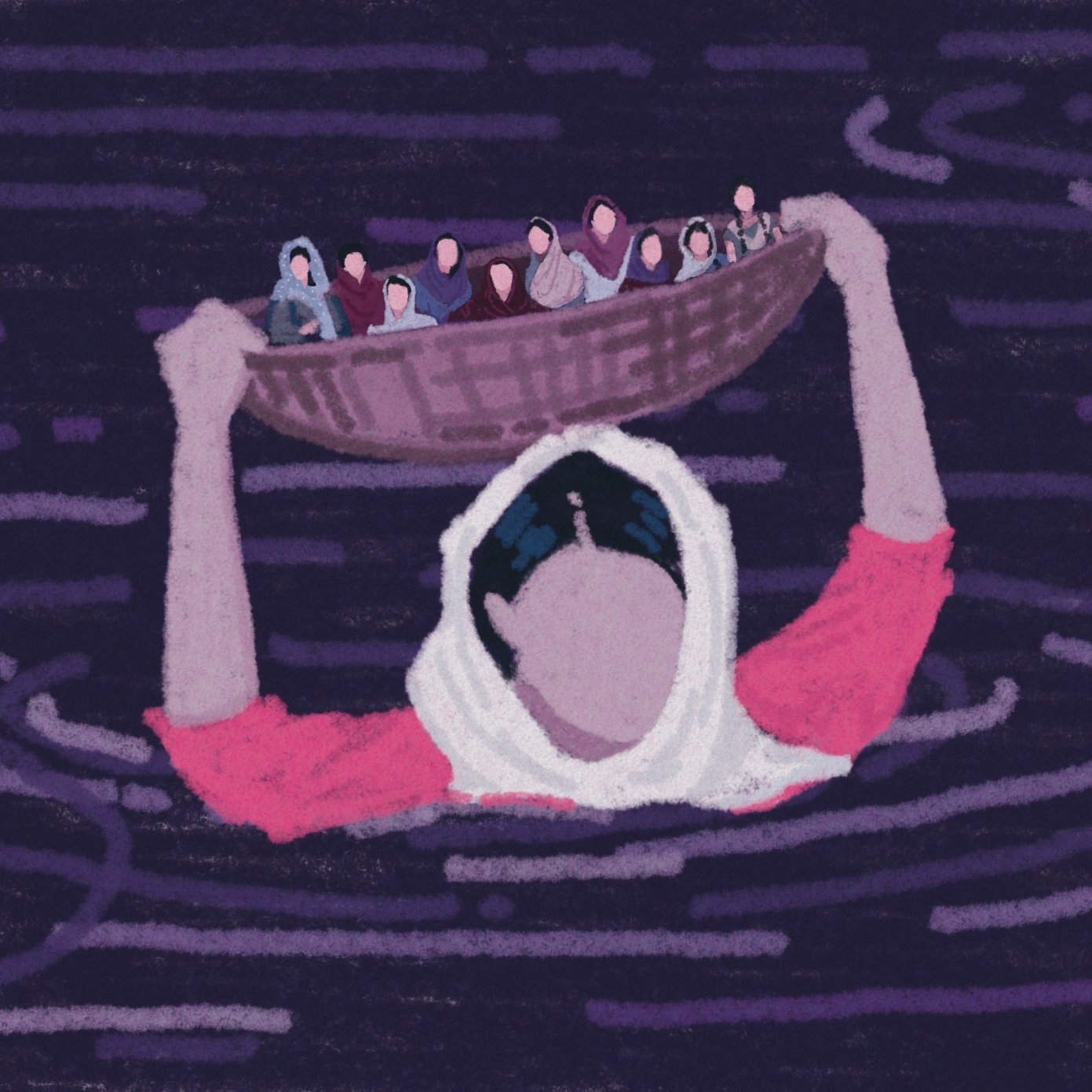
While the support and safety they provide is critical/essential, LHWs are themselves struggling with crumbling infrastructure and displacement.”



